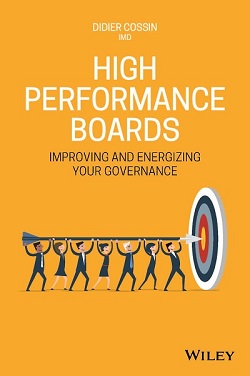
Defining a corporate board and then selecting members is a task not taken lightly by the average business owner. The critical point of reference for any board member remains experience and knowledge of the company they’ll be running from the boardroom. But the biggest question for most business owners is loyalty. Can you trust that person you’re putting in the boardroom not to ban you from the business? Will they do what is best for the business and the stockholders, regardless of what happens anywhere else? These questions and many more should be answered before anyone is signed into that position. But the clear definition of board members may be greater still than even these distinctions.
In the paradigm of business development, the most vigorous, most robust leaders in the industry are not necessarily the best board members for the job. And that is the purpose of reading this book, making those selections from a perspective of mandates and expectations required for the absolute selection of board members.
After reading the book, the simple process of reviewing it became the motivation for researching the contents to find the best parts on which to comment. The conception of basic elements of the process of selection becomes clear when you move through this textbook style maze of information. The tables, spreadsheets, and checkoff lists offer dynamic and valuable selection tools to help with board member determinations. The significance of using these valuable tools to decide who to select for the board improves the germane value of diversity with recurring inclusiveness of the specific demographics needed within the realm of any given company. The processes lined out in these studies would totally eliminate the confusing mannerisms normally influencing such decisions.
AMAZON: www.amazon.com/High-Performance-Boards-Energizing-Governance-ebook/dp/B086Z716TQ
Ultimately, the purpose of the board is governance of the corporate structure, within the realm of governance, diversity of persons and viewpoints brings adequate oversight and mitigation to the process of organizational administration. Within the realm of supervisory regulation, a diverse board offers strategic and pragmatic consequences. No other regulatory performance will offer a comprehensive and collaborative role necessary for balanced metrics and incentives without an established corporation. Such levels of involved and diplomatic board members as defined in the pages of this book cultivate and foster the kind of respect and trust necessary to build a strong corporate foundation for business success.
The strategic effect of working through such an educational and information based guide to build a corporate board allows the basic elements of integrity, ethical awareness, and functional supremacy to reign. I found myself looking through the pages of this book seeking more and more, only to find references and citations that are completely relevant to the processes of developing a board, or even a team of likeminded persons capable of putting together a successful business. The profound effect of using the tools and tables found in this book will benefit any business or corporation build a more successful structure.
by John Davis, posted by Clay Burton
